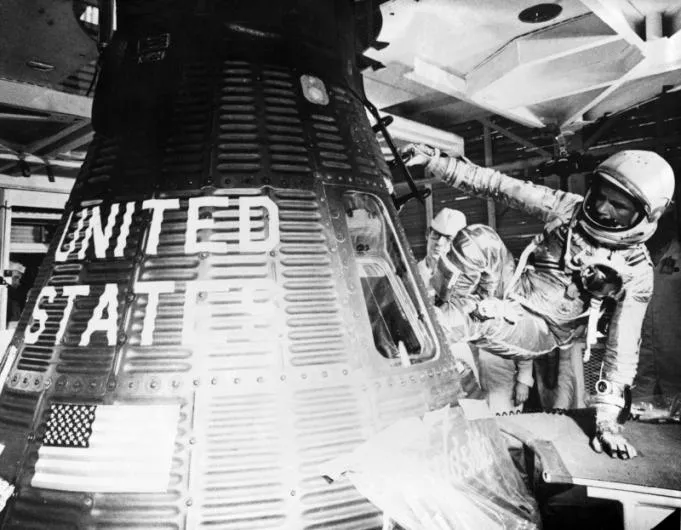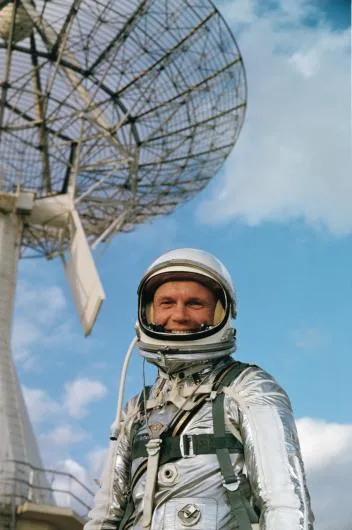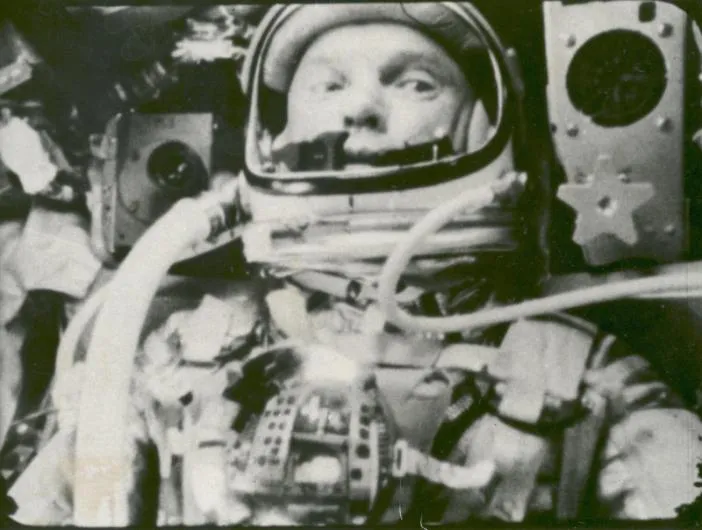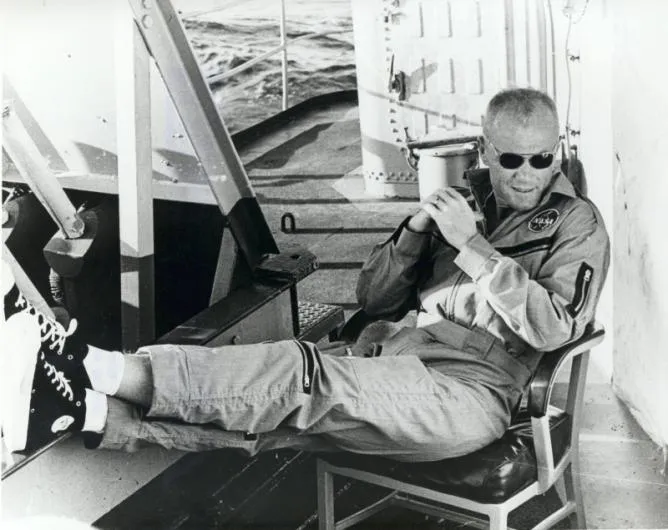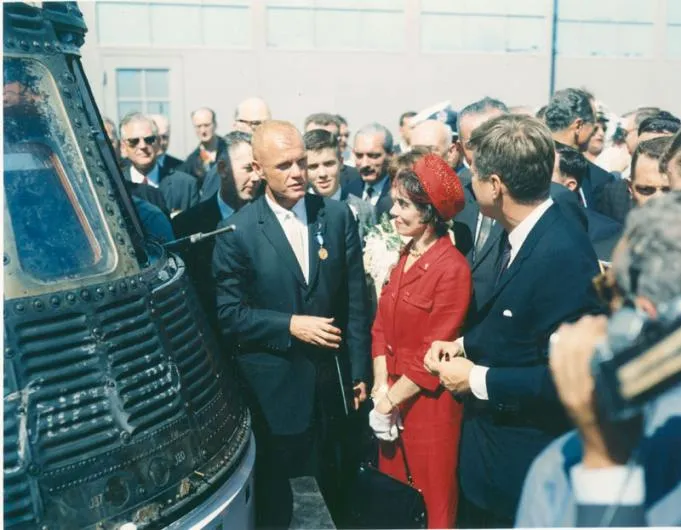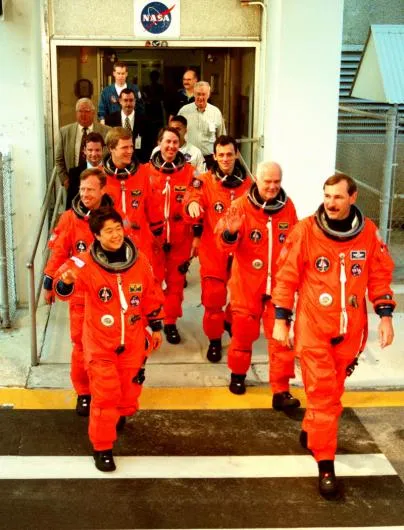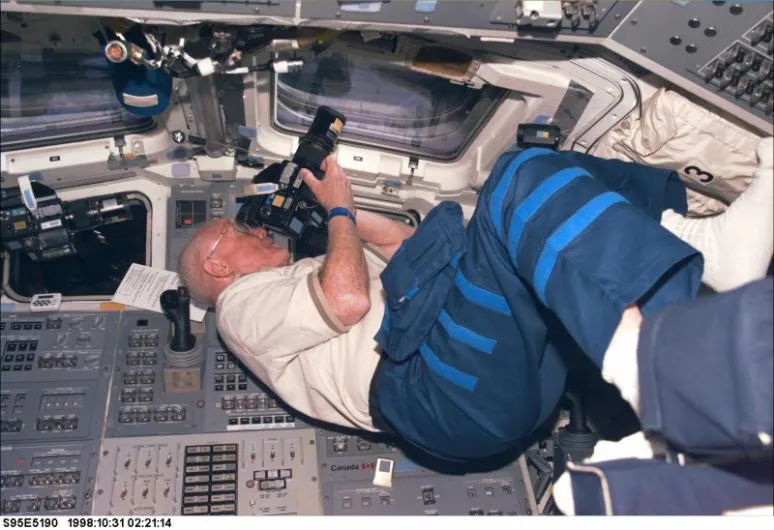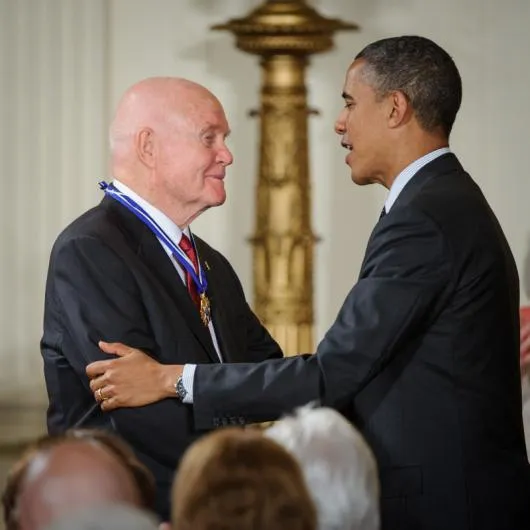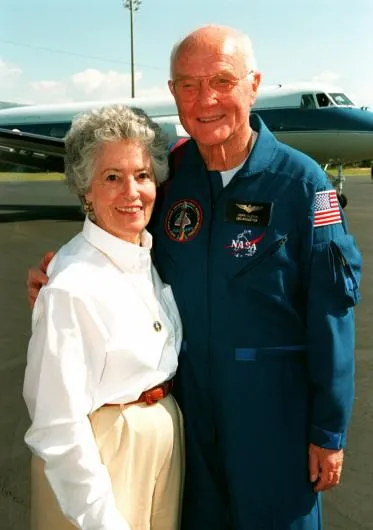John Glenn, the former US astronaut who became the first American to orbit Earth, has died at the age of 95.
He had been in hospital in Columbus, Ohio, for over a week and passed away while surrounded by his children and wife of 73 years, Annie.
Glenn was best known for having flown into space in the Friendship 7 orbiter on 20 February 1962 as one of NASA’s original Mercury Seven astronauts, part of the first US programme to put men in space.
He was one of seven astronauts on the mission, which involved six manned flights into space from 1961 to 1963 and saw the US begin to seriously contend with the Soviet Union in the space race.
Glenn’s Mercury flight could have ended in disaster when his spacecraft’s automatic system failed at the end of his first orbit of Earth.
However, he had previously trained for a scheduled 30-minute test during which he was to fly the spacecraft manually, and his training kicked in.
John Glenn: a life in images
"I went to manual control and continued in that mode during the second and third orbits, and during re-entry," he would later say.
"The malfunction just forced me to prove very rapidly what had been planned over a longer period of time."
The Friendship 7 orbiter's warning system then signalled that its heat shield was loose, a fault that could have caused it to burn up on reentry into Earth’s atmosphere.
Glenn’s life was saved by not jettisoning the retropack that was attached to the spacecraft, which was able to hold the heat shield in place.
John Glenn was born on 18 July 1921 in Cambridge, Ohio, in the United States.
Previous to his time flying into space as a NASA astronaut, he joined the US Marine Corps in 1943 and went on to fly 59 combat missions during World War II.
He retired as an astronaut on 16 January 1964 and left the Marine Corps on 1 January 1965, later being elected to the US Senate as a Democrat in 1974 and beginning a successful career in US politics.
Glenn would become the oldest person to fly into space when on 29 October 1998 at the age of 77 he launched onboard the space shuttle orbiter Discovery for a nine-day mission.
During his time in space he took part in scientific tests to study how humans age.
In 2011, he received the Congressional Gold Medal and a year later was presented with the Presidential Medal of Freedom by US President Barack Obama.
In a statement following the news of Glenn's passing, President Obama said:
“John spent his life breaking barriers.
(He) always had the right stuff, inspiring generations of scientists, engineers and astronauts who will take us to Mars and beyond - not just to visit, but to stay.
The last of America's first astronauts has left us, but propelled by their example we know that our future here on Earth compels us to keep reaching for the heavens.”
NASA administrator Charles Bolden said:
“Glenn's extraordinary courage, intellect, patriotism and humanity were the hallmarks of a life of greatness.
His missions have helped make possible everything our space program has since achieved and the human missions to an asteroid and Mars that we are striving toward now.”
